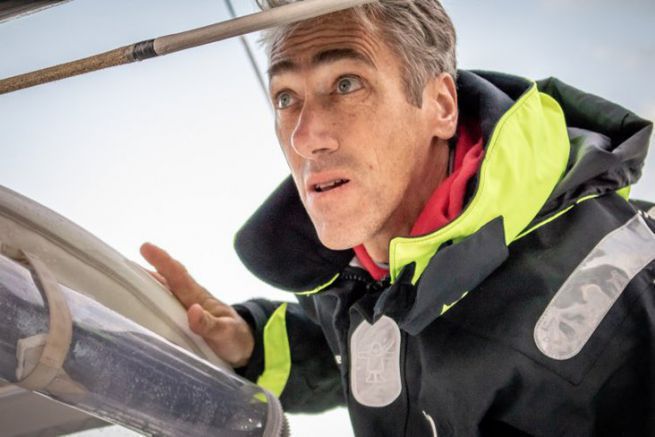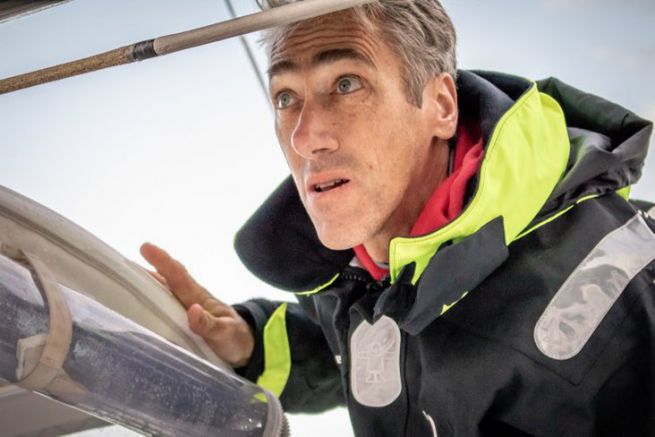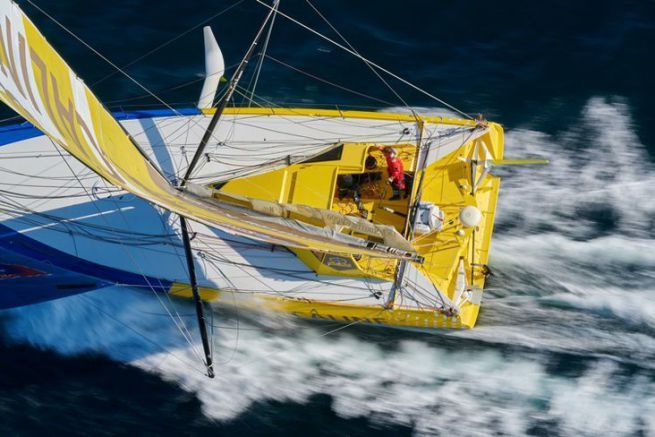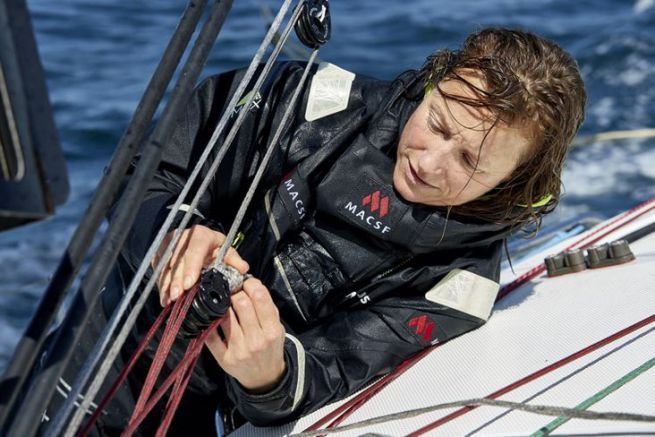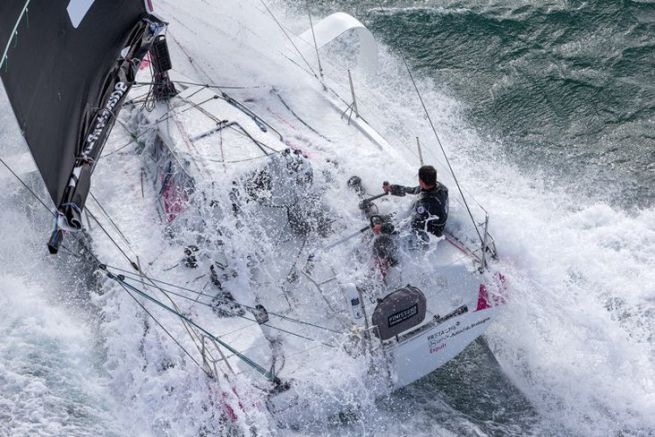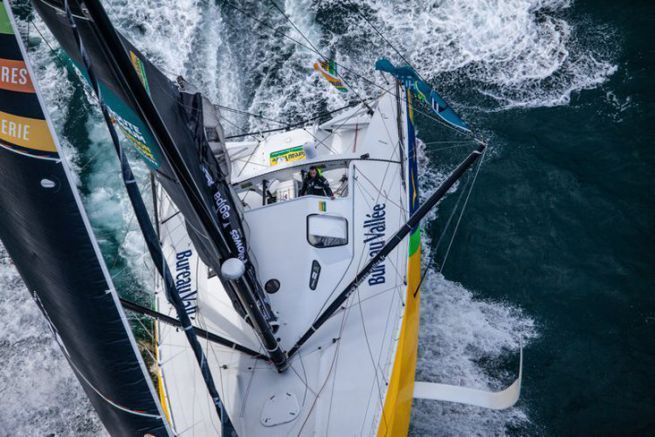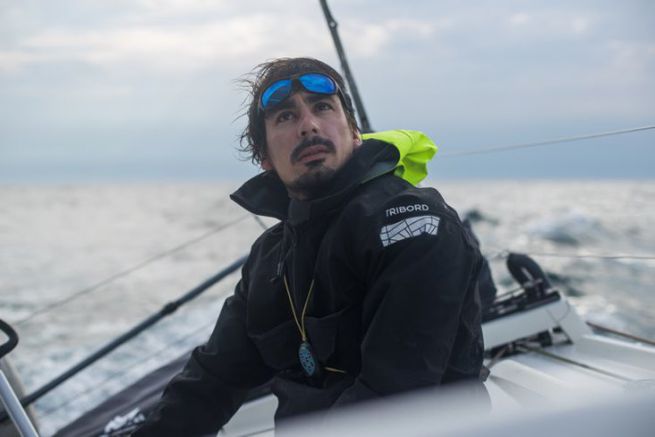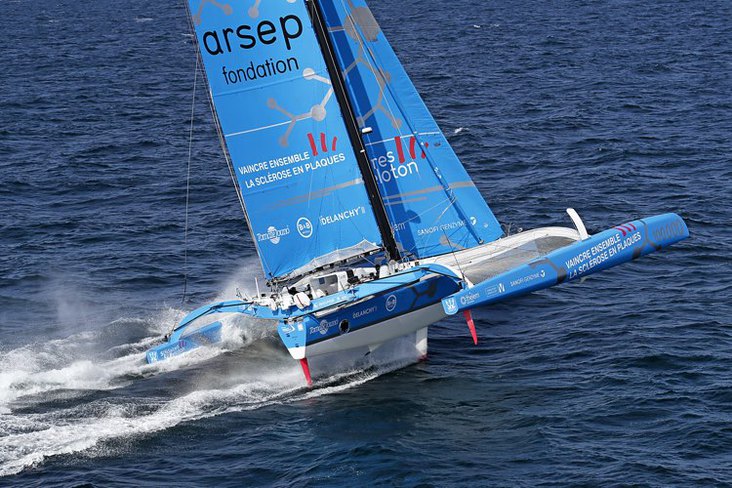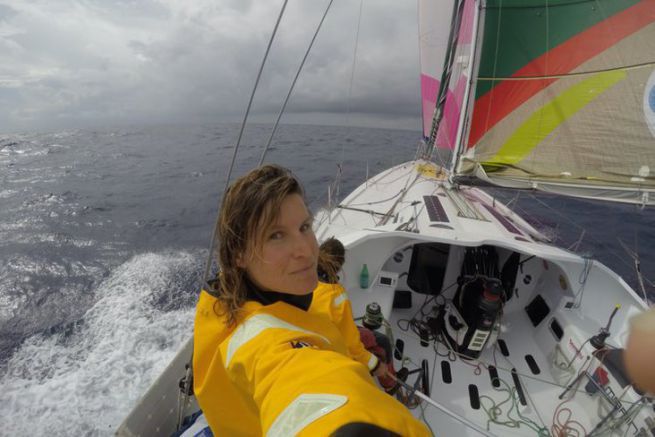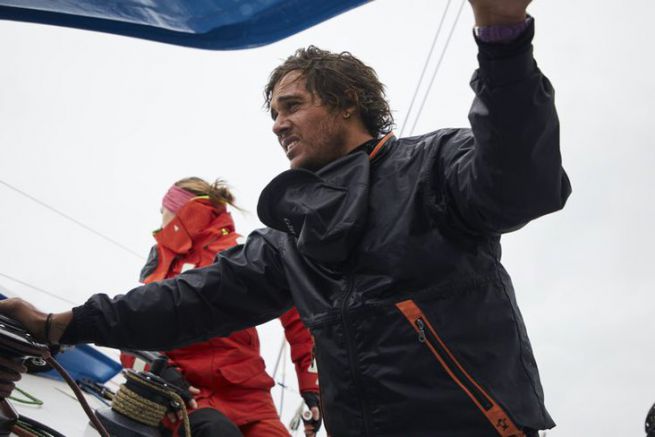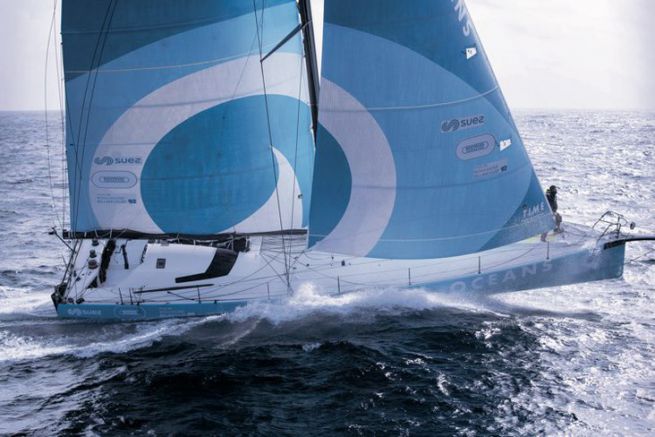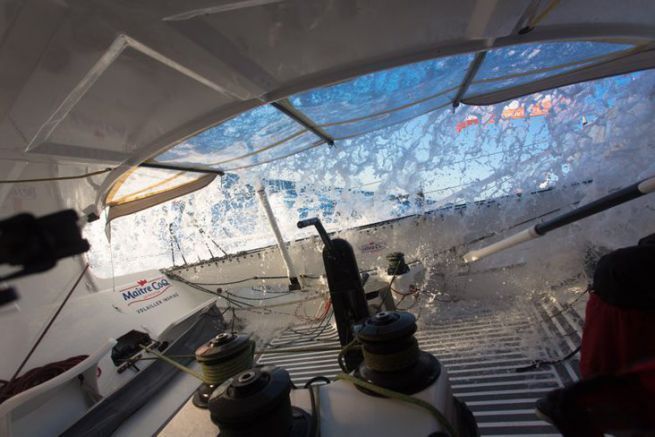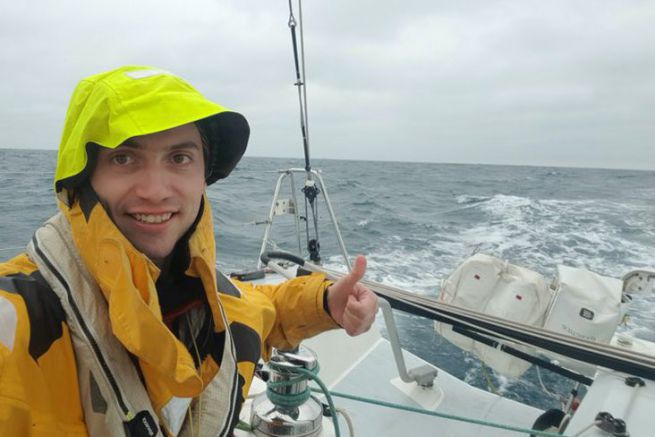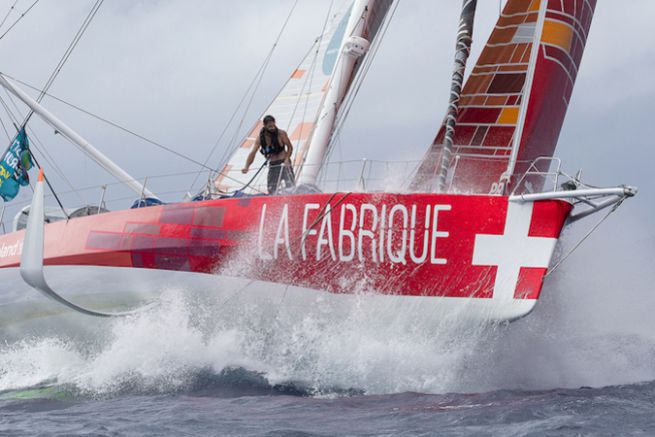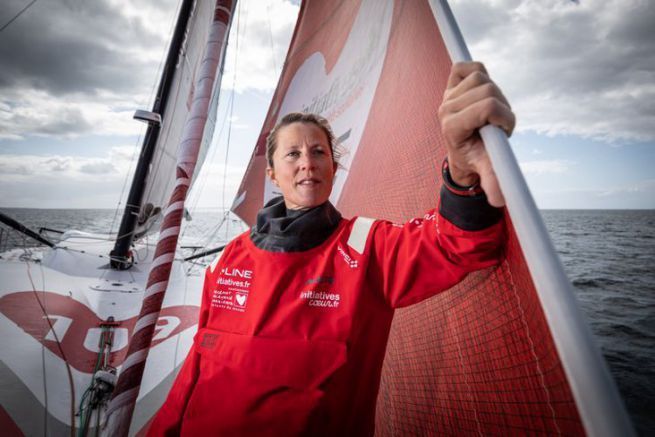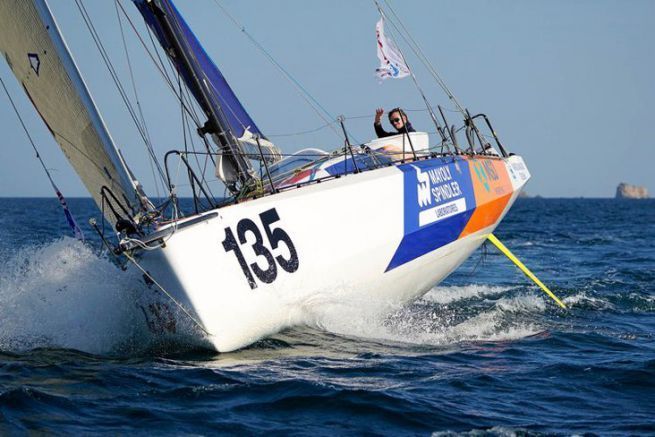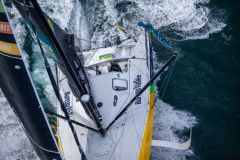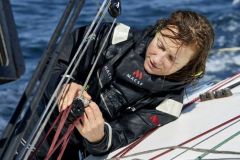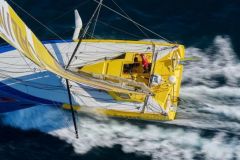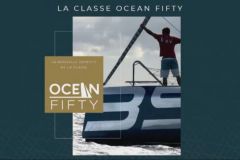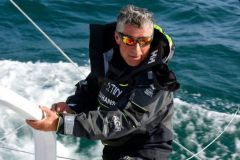The view
The type of sailing I do, in a multihull, on a very fast boat, has an extreme side. That explains why I'm always tense, at least when I'm awake, to anticipate the slightest risk, such as an unfavourable weather change... I'm constantly observing, checking the horizon, its evolution, studying and choosing the best trajectory. In particular as the tradewinds pass through, in the equatorial zone, as the squalls and the wind, which can increase and shift... can prove dangerous for a multihull
I've noticed that technical anomalies often jump out at me when I'm not openly checking the state of the boat. It can happen at any time, like a flash. Something will catch my eye: a damaged or loose part... sometimes very discreet! I remember a gooseneck, where the mast and boom are joined, which was in the process of loosening: if I hadn't noticed this and hadn't tightened the bolt, it could have caused a really problematic axle to break! I don't think it's just a coincidence: experience, the seafaring spirit and extreme care for the boat probably explain it
Sometimes, unexpectedly, I see a room on the bridge... a room that shouldn't be there. It always worries me a little bit, of course, because logically it must be missing somewhere. So I hope it's not too annoying and I start looking to see where it might be coming from... During the last Route du Rhum, when the sea has been very rough for several days now, I found a piece of composite foam one morning... A bad sign for me, as I thought a float, or the mast, had broken or been damaged! In fact, I realised that it was "only" the helm station that had been torn off. I expected much worse! I finally found it on the trampoline. Of course steering without this seat support was less comfortable for me afterwards, but at least the boat's structure hadn't been touched!
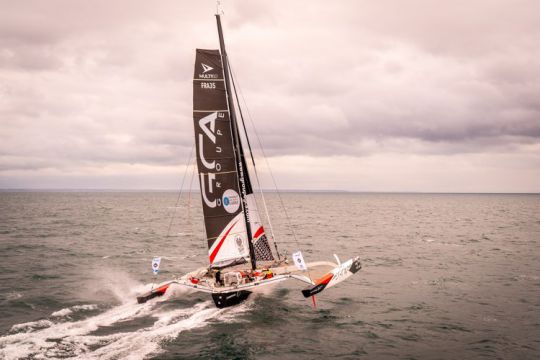
The touch
In the very wet and aggressive environment of offshore racing, hands are always put to the test. So when I hit them somewhere, or scratch them, I apply a healing and regenerating ointment... which I also imagine for me as a protective layer for the blows to come! In short, I take care of my hands. Especially their backs: on the palm, through manoeuvres, I have horn that protects, but on top of it... There is also the contact with water which is particular: at high speed, you get in quite a lot. It flows into the cockpit where it stagnates for a while before being evacuated. Of course, we take care of it with our oilskins, but we feel it all the same, especially its temperature, which varies according to the oceans. When you cross from east to west, after two days of sailing, you can already feel it warming up. And it's certainly much more pleasant to be in warm water than in water at 10°C! It's also, strangely enough, more reassuring..
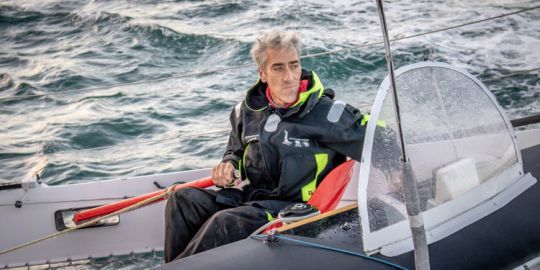
Hearing
We use this sense to evaluate the boat's speed because it makes different sounds depending on its speed. Certain appendages of the boat can cause very specific noises. For example, the central carbon daggerboard, which, at 15 knots, whistles: it is even said to sing... and powerfully, I can tell you! It's a sound similar to the one you hear when you go around the top of a glass with your finger... less crystalline perhaps. A sort of hesitant high-pitched vibration. The saffron also sings according to speed. There is also the apparent wind related to the speed of the boat added to the natural wind which produces an unimaginable din as it creeps between the shrouds. The rigging also vibrates... In short, you get used to all these noises that tell you about the boat's speed and performance. And it's when you hear an unusual sound that you get a tick. These are often the harbingers of problems that you quickly understand and then have to react immediately!
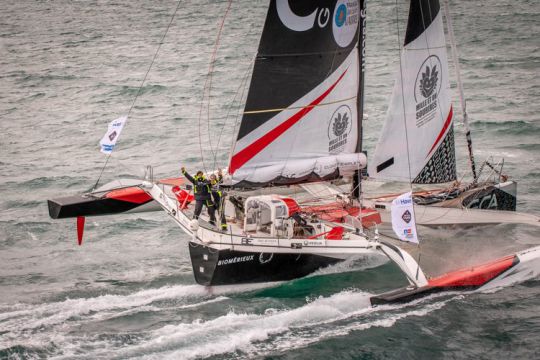
Taste
I like salt, but in small doses! It's nice, but I find it can become disgusting very quickly. Probably because it arrives in the mouth through intense and renewed sea spray, a sign of bad weather... and thus intensifies the stress already present. Sugar, I prefer it! I even love it, in the form of candy more precisely: I take a crazy amount, but calculated ... to last as long as possible during the race! It's at night that I feast on strawberries Tagada, mini bottles of coca, yellow bananas fluorescent or almost ... one or two packages pass through! It comforts me during the time slots a little worrying and stressful: the night. Especially if there's no moon, you can't see the sea, you don't move around too much, because it's more dangerous..
The sense of smell
We come across a lot of fish flying around out there. When one of them falls on the boat, I immediately try to put it back in the water to keep it alive, I don't like to waste it and see it die for nothing. And then I also tell myself that a good deed like that will perhaps earn me a reward, clemency, from Mother Nature, from the sea? You never know...! But when it falls during the night on the boat, it's in the morning that I throw them away, often dead by the way. They go to feed marine predators, thus benefiting another species, and thus finally feed the animal chain. It's not a bad thing! But sometimes, however many times I go round the boat, nothing helps, the smell persists... So I cling even more to my sense of smell, and I search and search. And of course, I end up finding. It's unstoppable that such a strong smell of fish is so strong, and, to tell the truth, not very pleasant! When I take it in my hand and put it back in the water, that's not very pleasant either: these fish, when they're alive, are still alive, and then their surface is quite slimy... Needless to say, I hurry to clean my hands afterwards!
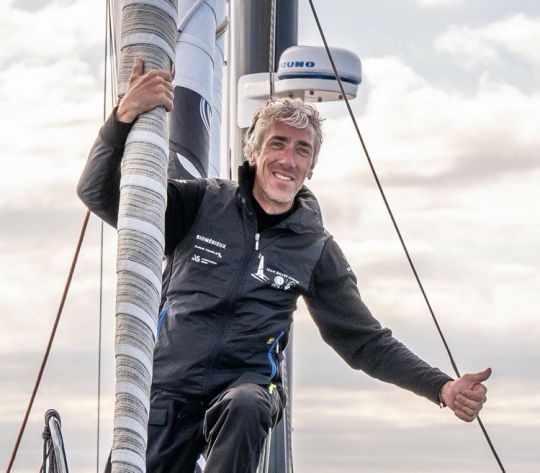
What about fear?
When sailing 15 metre multihulls at high speeds, you're always on the edge of the razor's edge. It would be unreasonable and absurd, in my opinion, not to be afraid: feeling this latent fear allows you to realise the danger which is always lurking, it prevents you from going too far. I'm always apprehensive
There is another, higher degree of fear: it is imposed during very hot moments, but is followed, immediately, by a necessary and sudden reaction. I remember a falling night and a powerful squall during the last Transat Jacques Vabre. I was passing through the trade winds, not far from the equator. The weather was stable and we were all sailing outside. I was on standby with the autopilot and a sheet in hand in case the wind got too strong. And it did! I saw it on the instruments, and felt it as the boat's speed increased. It was getting close to the limit... So I let go, but as I did, the wind was picking up. And eventually the boat crashed. At that moment, I held my teammate's life and my own in my hands... I was in extreme fear, but almost simultaneously in action. Fortunately, the boat recovered. Torrents of water soon fell on us. We took a reef to get things back on track... And then the wind returned to normal. Even though we were still shaken by this episode, as we are above all competitors, we immediately wondered when to send the sail back... of course!
